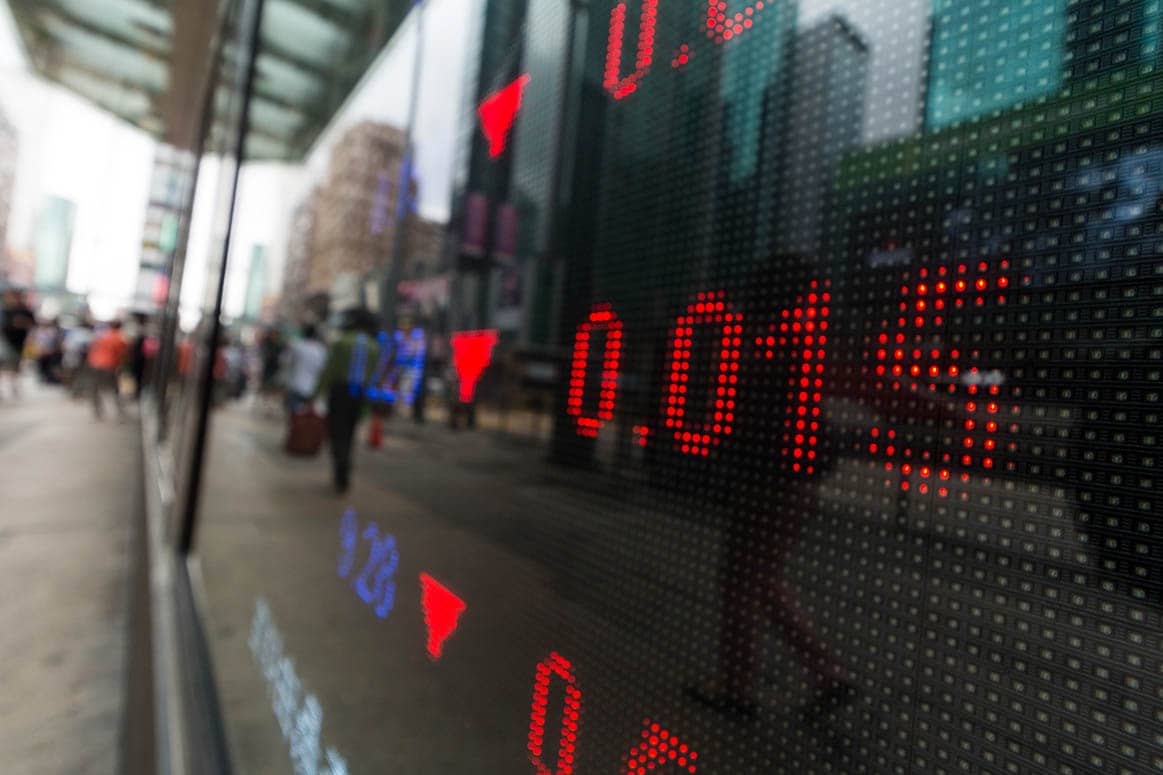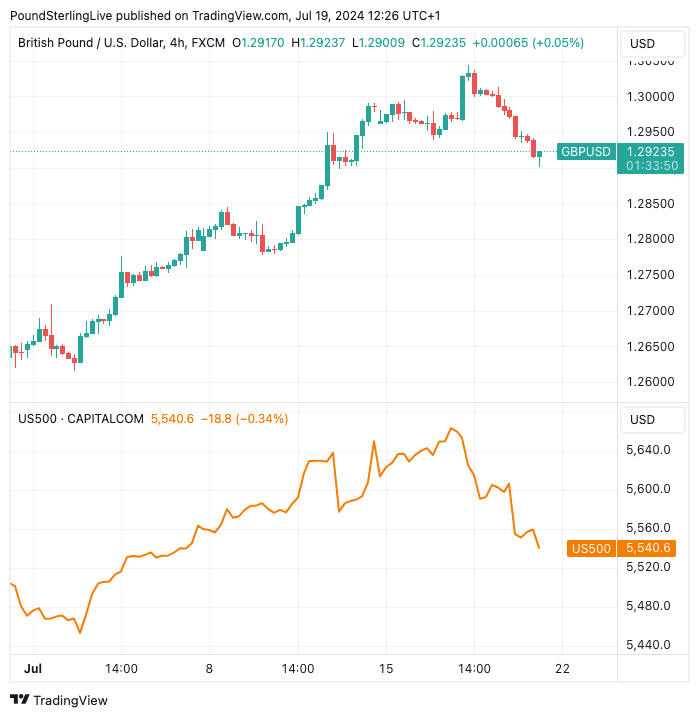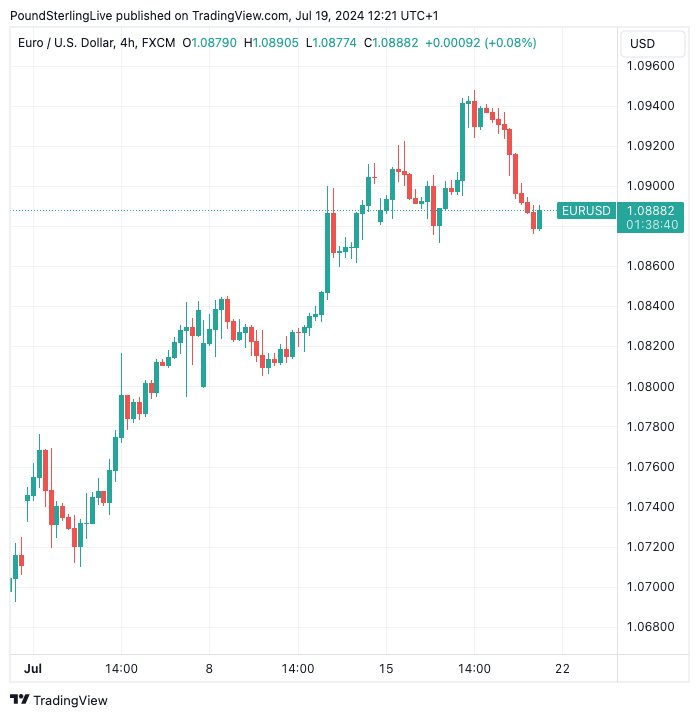Dollar Rallies on Safe-haven Demand Centred on Tech Outages, Trade War Fears
- Written by: Sam Coventry

Image © Adobe Images
The Dollar is on the front foot again amidst a decline in global equity markets, which is linked to new restrictions on tech exports to China and a global IT shutdown.
Stock markets in Europe and Asia fell amidst a global shutdown in services following a critical failure in Microsoft-reliant software.
A failure related to a Microsoft antivirus component affected banks, airports, trains, news stations, health services, and many other businesses. The scale of the outage reveals just how centralised tech has become, with a handful of key companies proving crucial to the running of the global economy.
Falling markets tend to be a boon for the Dollar which is considered a 'safe haven' currency. The Euro to Dollar exchange rate extended its pullback from a peak at 1.0950 to quote at 1.0889 at the time of writing. The Dollar extends its previous day's rally to push GBP/USD back to 1.2929.
Compare Currency Exchange Rates
Find out how much you could save on your international transfer
Estimated saving compared to high street banks:
£2,500.00
Free • No obligation • Takes 2 minutes
"The safe haven USD is capitalising," says Daragh Maher, Head of Research for the Americas at HSBC. "The USD is stronger this morning, with the focus on cloud-related tech service outages, and President Biden’s electoral prospects."
Microsoft has said it has identified and rectified the issue, which has eased some of the worst of the selling pressure and we are seeing some pullback in the Dollar.
Nevertheless, the outage comes at a sensitive time for markets that were already grappling with stringent new restrictions on tech exports to China proposed by the Biden administration.
"Equity markets were mostly in the red," says Raffi Boyadjian, Lead Investment Analyst at XM.com. She explains that the developments are behind heightened fears of a fresh trade standoff between China and the U.S.
Above: GBP/USD (top) is dragged lower by a selloff in U.S. stocks. Track GBP/USD with your custom alerts; find out more here
The Biden administration has told allies that it’s considering using the most severe trade restrictions available if companies such as Tokyo Electron Ltd. and ASML Holding NV continue giving the country access to advanced semiconductor technology.
"It is the current administration’s plan to tighten the rules for all chipmakers that use U.S. technology to sell to China that seems to have sparked this week’s rout," says Boyadjian.
The rally in the Dollar could prove short-lived as the fundamental settings that have driven markets to record highs remain intact.
"We think a transformation akin to past technological revolutions is gearing up. We keep leaning into risk and the AI theme," says Jean Boivin, Head of BlackRock Investment Institute. "Rather than waiting for clarity, we’re leaning into risk. We stay overweight U.S. equities and the artificial intelligence (AI) theme yet monitor valuations."
Above: EUR/USD at 4-hour intervals. Track EUR/USD with your custom alerts; find out more here
Furthermore, the prospect of Federal Reserve interest rate cuts later in the year are tipped by analysts to weigh on the Dollar.
"The market is now fully pricing in an initial rate cut in September and a second more in December. Should this prospect consolidate, the recovery of the dollar could prove short-lived and should be followed by a new decline soon," says Asmara Jamaleh, an economist at Intesa Sanpaolo.
"Markets are pricing in six rate cuts over the course of the next nine policy meetings with the benchmark policy rate settling at around 4% in exactly one year from now. This is dollar bearish," says George Vessey, Lead FX Strategist at Convera.






